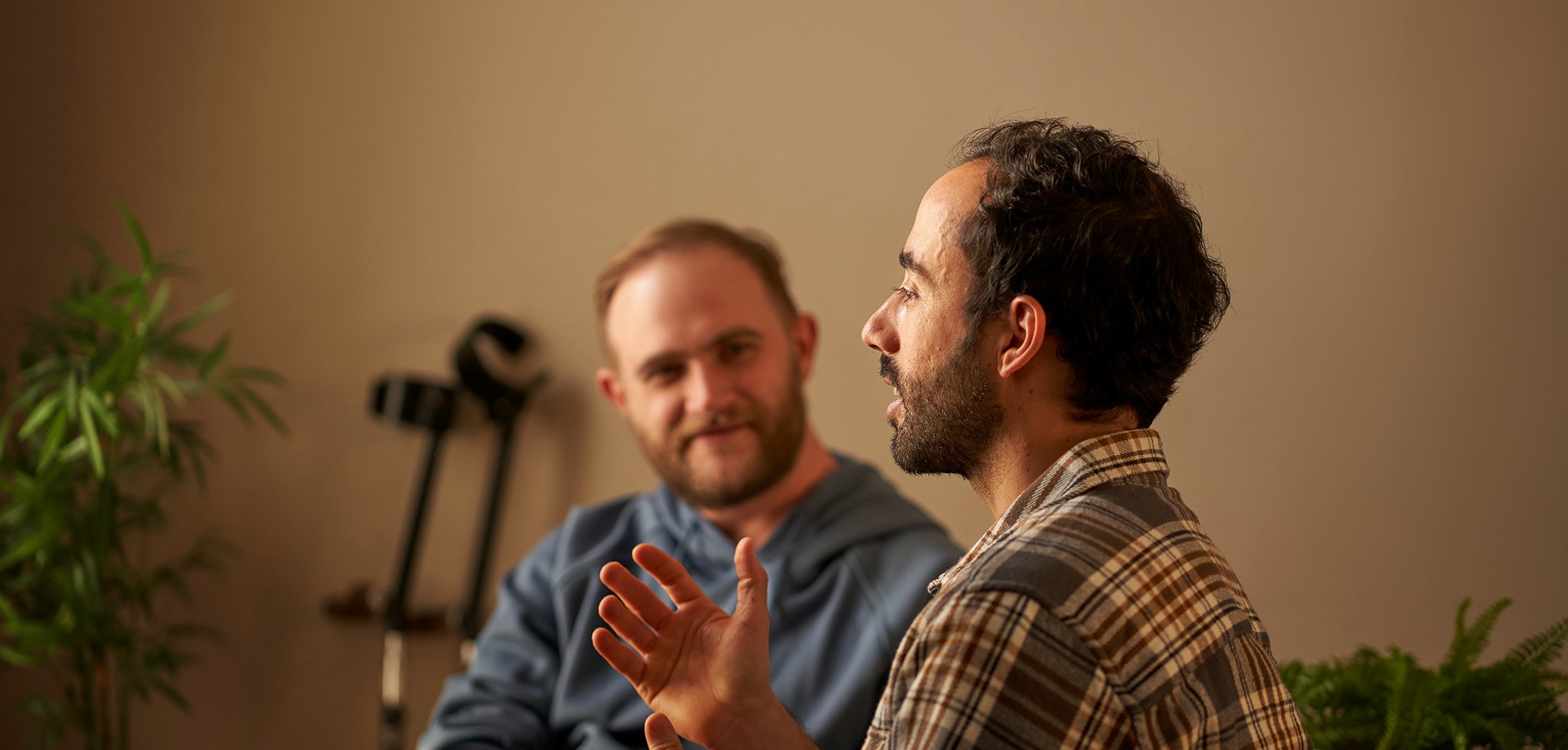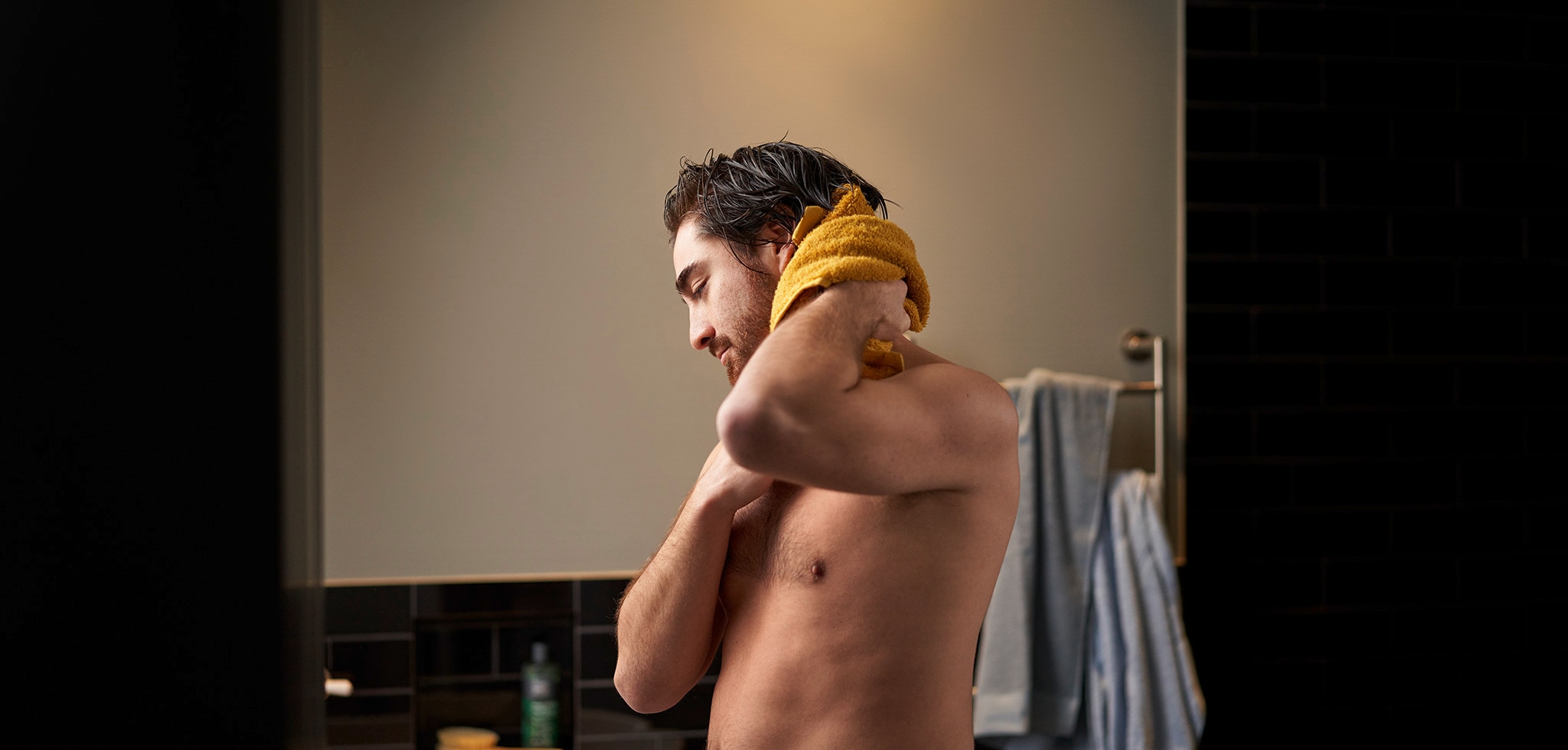1. Teach the power of holistic self-care
So, what is a role model? We believe it’s someone who cares for themselves, so they can care for the people they love.
Our research shows men who regularly check in, ask for help, meditate, eat well, exercise, read books and care for their skin – in other words, men who practice holistic self-care – spend 44% more time caring for others and share household chores more equally, making them true male role models.
Sean Williams, proud father and founder of The Dad Gang, says: “We’re not just providers and protectors – we’re also nurturers and caregivers. We don’t need to be traditionally masculine. We can be homemakers, too. I think masculinity is changing in a positive way. We’re more in tune with self-care now.”
2. Practice empathy + communication
Communicating, listening and never being afraid to ask questions or admit mistakes are traits all positive male role models foster – even if society has conditioned many men to perceive them as weaknesses.
Being open, compassionate and accountable doesn’t just help us learn and evolve – it helps us break free from societal pressures and stereotypes, so we can be role models for young males as well.
Hugh adds: “When your child sees you’re regularly practicing acts of kindness towards others, they’ll grow to understand this as the norm.”
3. Embrace emotional authenticity
Research by the Movember Foundation (PDF) shows 58% of men feel societal pressure to be emotionally strong and not show weakness.
But what makes someone a good role model is the confidence to acknowledge our full range of emotions – no matter what society says is ‘masculine’ or ‘feminine’. We believe it’s okay for men to be competitive, and it’s okay for men to cry. Expressing (not denying) our feelings is the key to emotional authenticity.
“It’s all about balance,” says Chris Maggee, who went on a journey from rugby to yoga. “There’s nothing wrong with embracing masculinity. I still have moments of aggression and bravado, but also moments of softness and sensitivity. You don’t have to pick one side.”
4. Challenge gender roles + stereotypes
Our research shows that boys who see their fathers engaged as full partners in domestic care are 1.5x more likely to contribute fairly to unpaid care in the household.*
Another study also suggests that girls who see their dads engaged as full partners in domestic care are more likely to work outside the home and pursue careers beyond gender stereotypes.*
That’s why, to be positive male role models for this generation and the next, we always need to challenge gendered perceptions of men’s role in the family.
5. Support your community
What makes a good role model isn’t just about caring for yourself and the people you love – it’s about supporting your community, too. Here are a few ways we can be positive male role models and help empower men, dads and all of society:
- #CelebrateBlackDads and the true story of Black fatherhood to help us fight harmful stereotypes.
- Sign the petition to pass The George Floyd Justice in Policing Act of 2021, which will hold police accountable, end racial profiling and empower communities.
- Take the paternity pledge to make paternity leave a right for every dad and help them be positive male role models from day one.
*van der Gaag, N., Heilman, B., Gupta, T., Nembhard, C. and Barker, G. (2019). State of the World’s Fathers: Unlocking the Power of Men’s Care. Washington, DC: Promundo-US.





